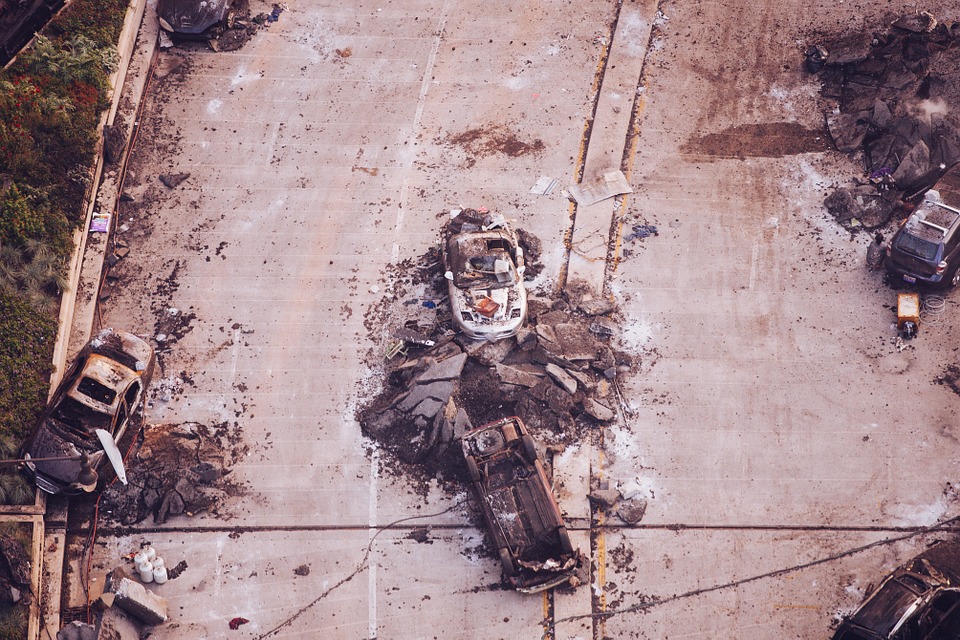by Priscilla Constantino Sales, History teacher and cultural producer.
Translated and edited by Matheus Lucas Hebling
On the night of July 29th, we sockingly watched the news about the fire that hit a shed at the Cinemateca Brasileira in Vila Leopoldina, São Paulo. Strangely, the feeling shared collectively was not one of amazement, but of an undignified confirmation of an announced tragedy.
This episode was preceded by two other events Recent that mark m the neglect of public power with our cinematic memory and opens wide the Cinematheque crisis. It is about the flooding that happened in February 2020, when a shed of the Cinemateca Brasileirawas flooded in the West Zone of São Paulo, mainly affecting materials such as furniture, photographs, books, and brochures. Between July and August in 2020, an action by the Federal Public Ministry in São Paulo against the Union for intentional abandonment of the Cinemateca becomes public.
The Brazilian Cinema was administered since 2018, the Association Communicative Roquette Pinto (Acerp), when in December the Bolsonaro government, through the Department of Culture Special linked to the Ministry of Citizenship, broke the contract with social organization. The change of management took place amid several protests carried out by the institution’s employees and friendly entities (SOS Cinemateca, Cinemateca Acesa, Frente Amplio Cinemateca Viva, and Mariana em Movimento).
These protests were already reported risk of fire, delays in water bills, light, and wages. The banners, speeches, and screams denounced the federal government for administrative disarticulation motivated by ideological issues. The answer came with a letter in which the special secretary of the federal government culture, Mário Frias, formalizing the request of handing over the keys of the Cinematheque estate by Acerp, firing 52 skilled employees for film preservation
On January 15, 2021, the Sociedade Amigos da Cinemateca assumes the management of the Cinemateca Brasileira on a provisional basis until a new social organization was hired to take over the administration. In May of this year, in a virtual hearing, the Federal Public Ministry in São Paulo (MPF-SP) suspended the lawsuit against the Union for abandoning the Cinemateca Brasileira, under the commitment of the federal government to present a schedule of actions aimed at preserving the equity within 45 days. With the deadline in July, the Court warns about the risk of fire and grants another 60 days for the continuity of the preservation actions. And at the end of this brief and necessary chronology, we can conclude that there was no time to prevent the announced tragedy, perhaps that was the intention.
The Cinemateca Brasileira is the main institution for preserving the memory of cinema in Brazil. Since 1940, it has been developing activities around the preservation and dissemination of Brazilian audiovisual production. Responsible for the largest collection in South America, it has around 250 thousand rolls of films and more than one million documents related to cinema, such as photos, scripts, posters, and books, among many others.
It is important to point out that the Cinemateca is a living museum, it feeds a chain of activities through its pillars of preserving, diffusing, and restoring. Needless to say, but ultimately we must tirelessly repeat the obvious, that hundreds of researchers depend on m this collection for the production of knowledge about our film. That hundreds of people are orphaned by the training projects offered by the Cinemateca and more, that thousands of film clubs and independent exhibitors lose their reference. The Cinematheque is alive because it makes the country’s memory spin, collaborating in the construction of national identity, has a technology park and specialized knowledge, all built with public money. It is ours!
It is unacceptable to see all this national heritage at the mercy of political, bureaucratic games, and empty positions. In a note published by the federal government, we read: ” The Secretariat has already requested support from the Federal Police to investigate the causes of the fire and only after its full control by the Fire Department working at the site will it be able to determine the impact and the necessary actions for an eventual recovery of the collection and, also, of the physical space”. The Cinemateca needs specialized employees, maintenance of climate-controlled warehouses, funds to manage the actions, and the end of a government that supports the destruction of culture in Brazil every day. More than ever we must face our role as Brazilian citizens s and we oppose this ongoing project.
We have already heard a lot about the occasion of the Nazi occupation in Paris, we are told that Henri Langlois, director of the French Cinematheque, decided to bury film cans and hide thousands of films in the attics of houses, which made it possible to save a large part of the history of French cinema. Is this our path?
In addition to all the degradation that acts silently in the Cinemateca space, the workers of the Cinemateca Brasileira published a manifesto about the fire, in which they name it as Crime Announced and describe the losses, such as part of the Embrafilme Archive – Empresa Brasileira de Filmes SA (1969 – 1990), part of the Archive of the National Institute of Cinema – INC (1966 – 1975) and Concine – National Council of Cinema (1976 – 1990), archival documents still in the process of incorporation, part of the collection of documents from the Tempo archive Glauber, from Rio de Janeiro, part of the collection of the distributor Pandora Filmes (35mm copies of Brazilian and foreign films), masters and copies of single newsreels, trailers, advertising, documentary films, fiction films, domestic films, part of the collection of School of Communications and Arts of the University of São Paulo (ECA/USP) – student production in 16mm and 35mm – ep art from the video collection of journalist Goulart de Andrade. And as distressed as I am to read this list, there is no way to repair such losses.
All this abandonment and the abominable third fire at the Cinemateca Brasileira forces us to enumerate some exits. The first is to name and denounce what I call here the Cinemateca’s threats, the second is to urgently outline a new plan for the Cinemateca and, finally, to shout at the top of your lungs about the functions and importance of the Cinematheque. It also makes us summon the great creator of the Cinemateca Brasileira project, Paulo Emílio Salles Gomes, who never tired of reminding us about the unimportance of cinema in Brazil, even if today this does not prevent his pursuit, and thus declares in Festejo very personal in 1977: “If the neglect of film conservation continues, the centenary celebrations of Brazilian cinema will certainly be disturbed by the presence of an unimaginable, squalid and accusing cinematheque.”
We need to react!
Sales, Priscilla Constantino. 2021. "The fire at the Cinemateca Brasileira: a premeditated chronicle". Brazilian Research and Studies Blog. ISSN 2701-4924. Vol. 2 Num. 2. Available at: https://www.bras-center.com/the-fire-at-the-cinemateca-brasileira-a-premeditated-chronicle/, accessed on: April 16, 2025.








